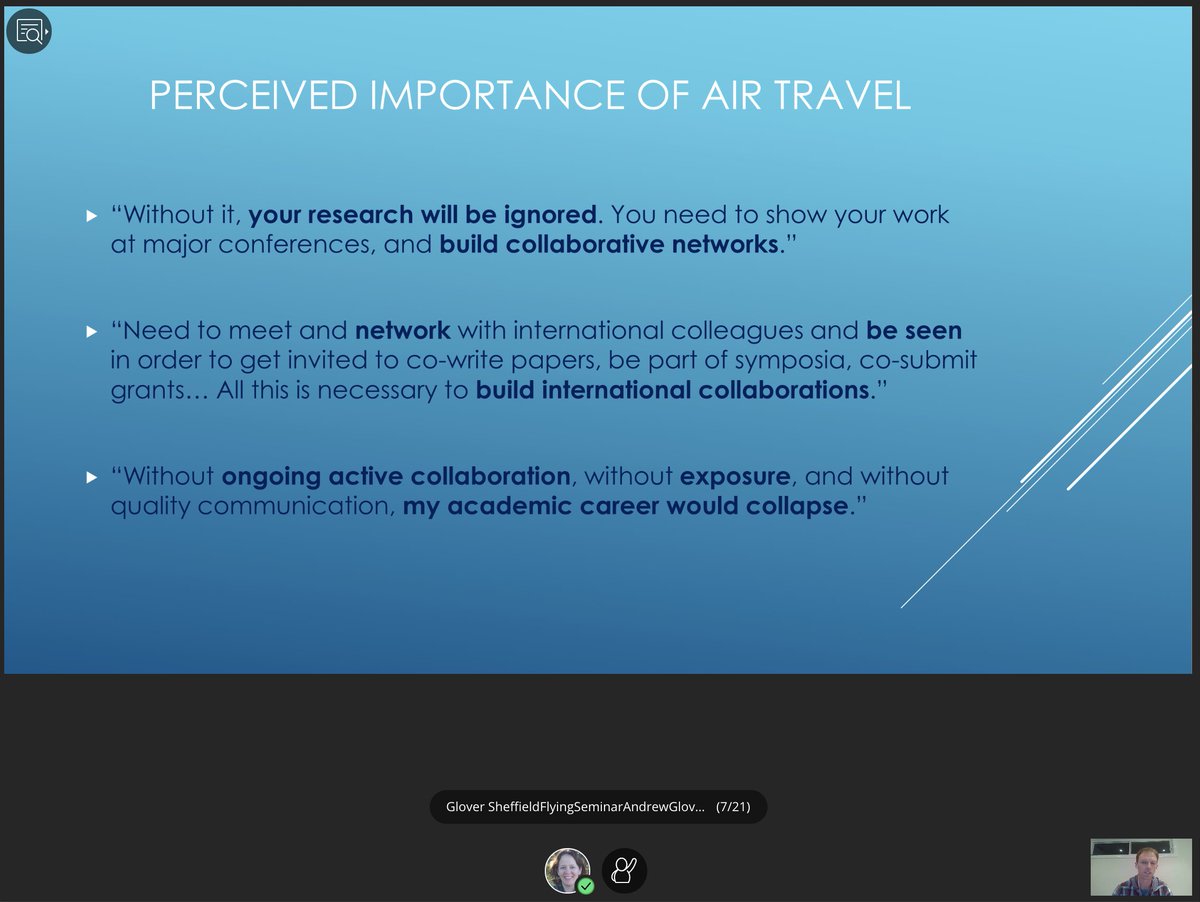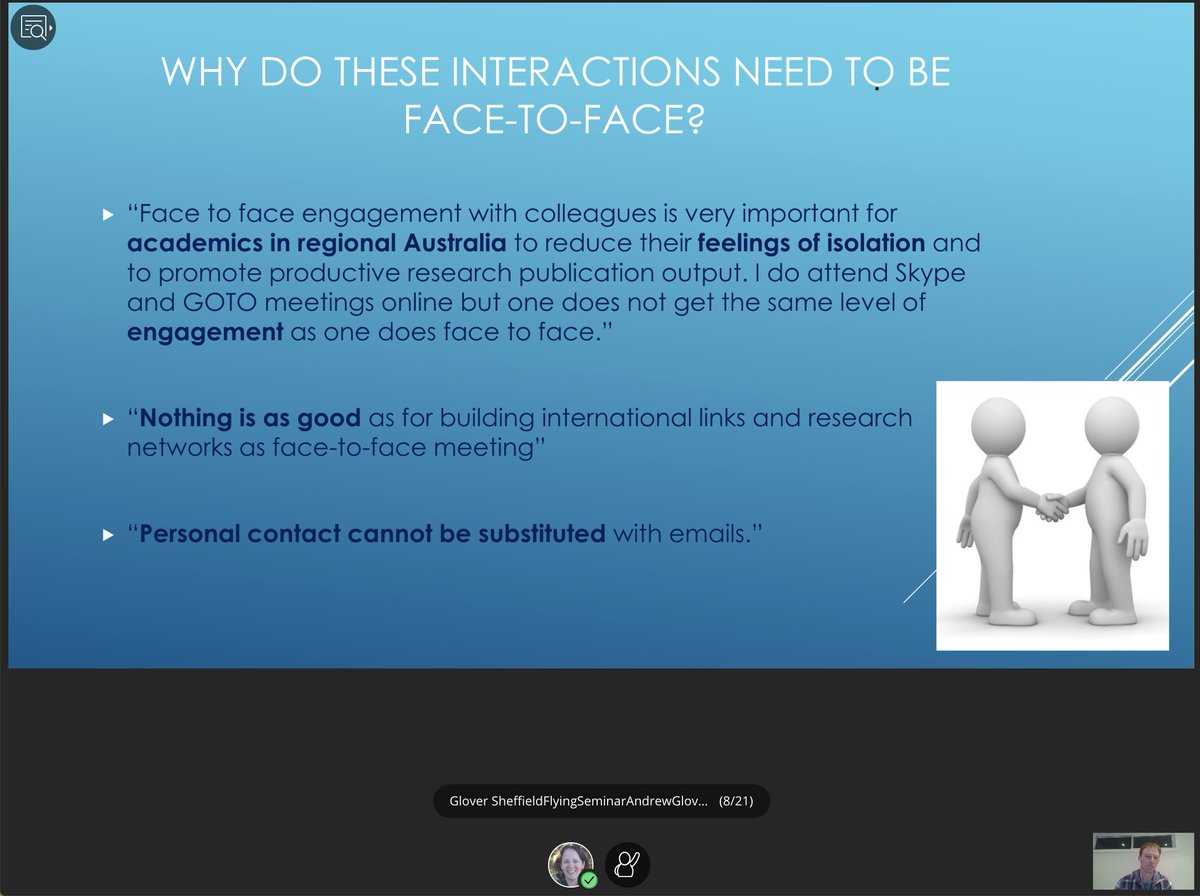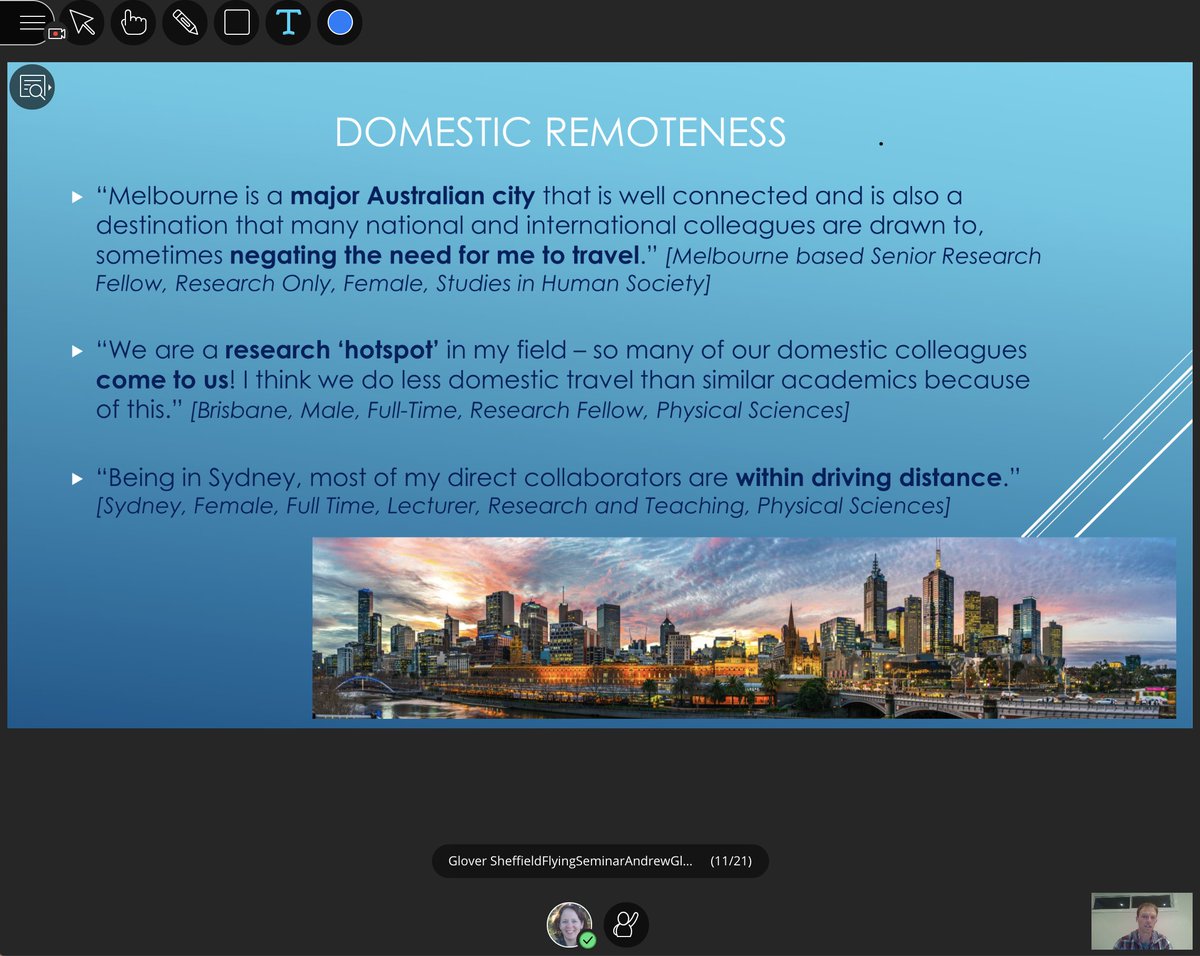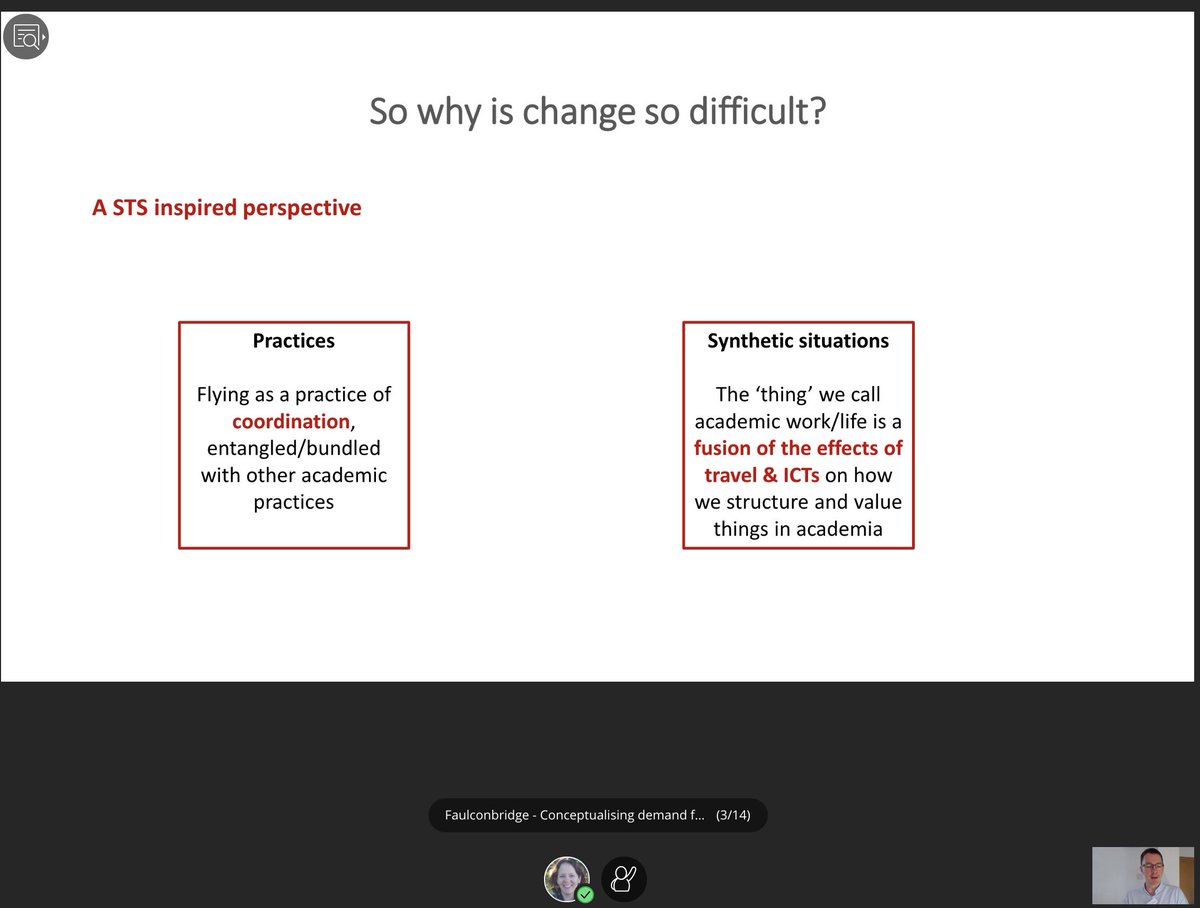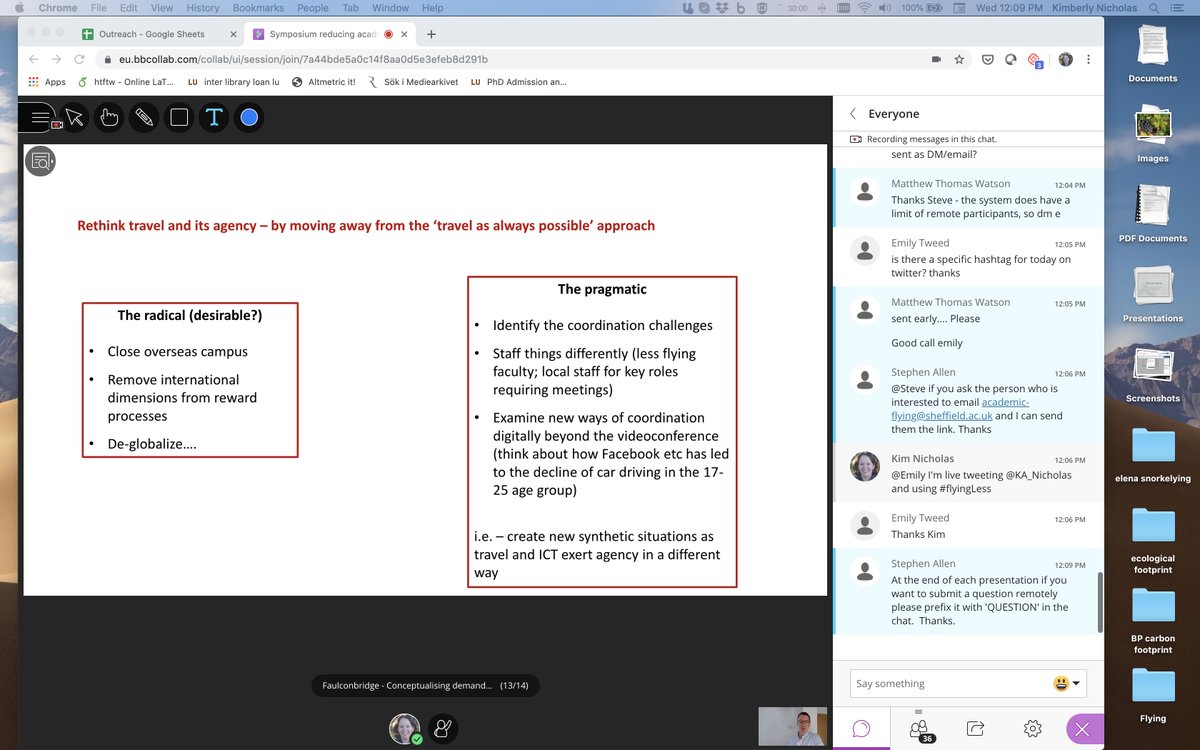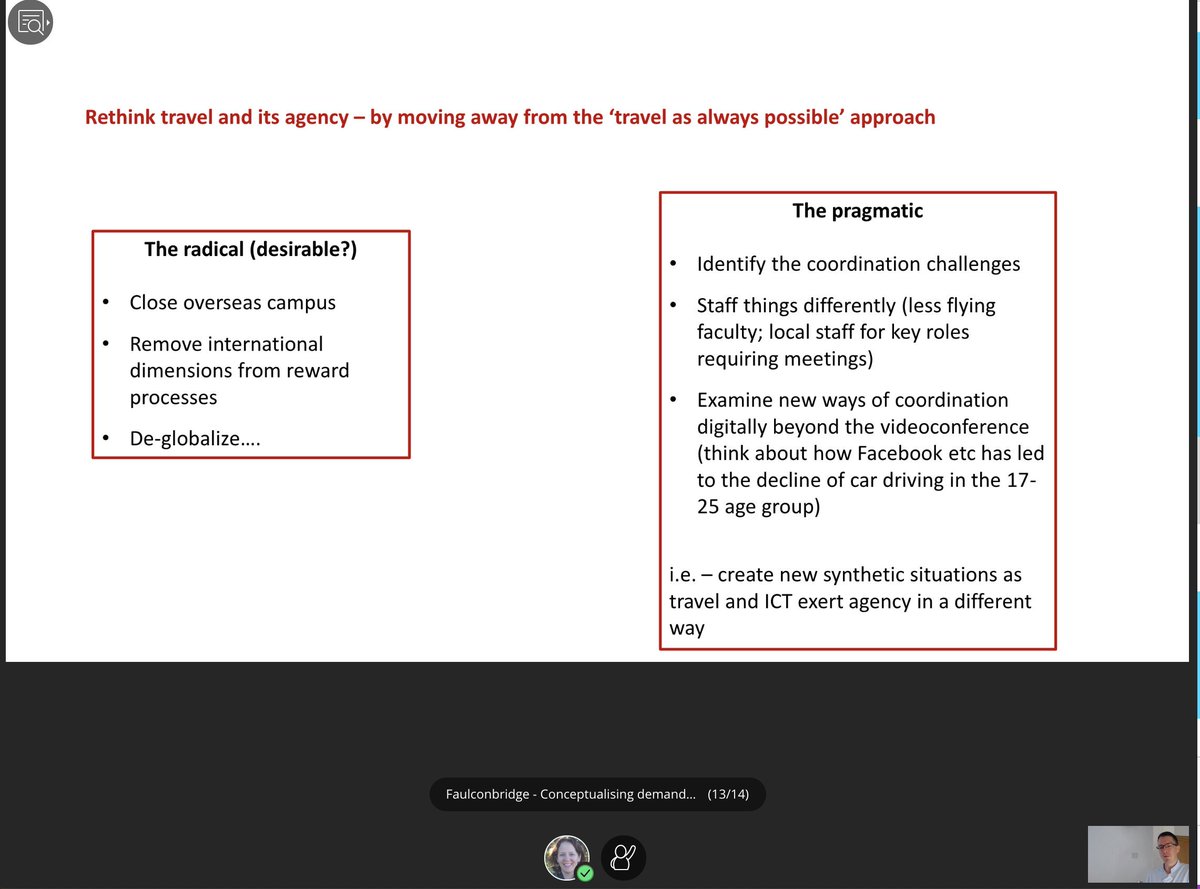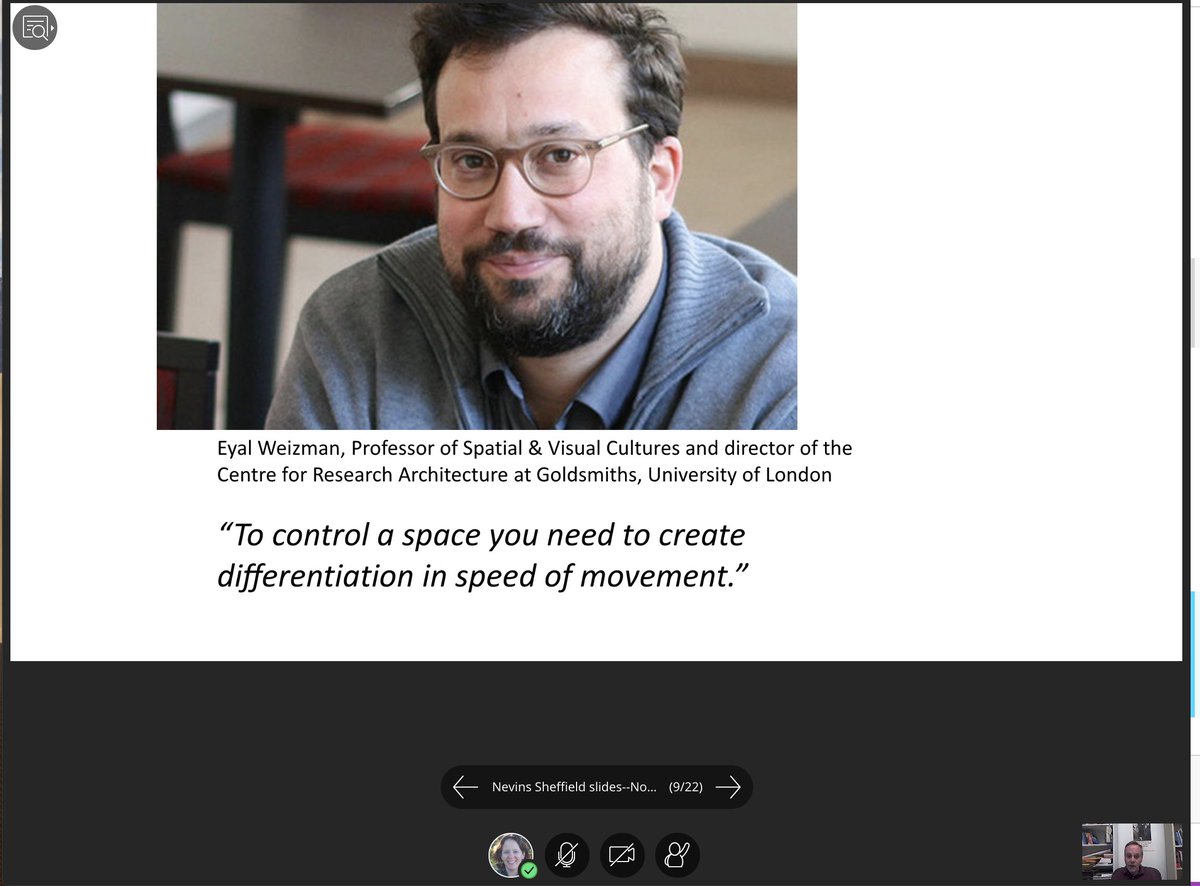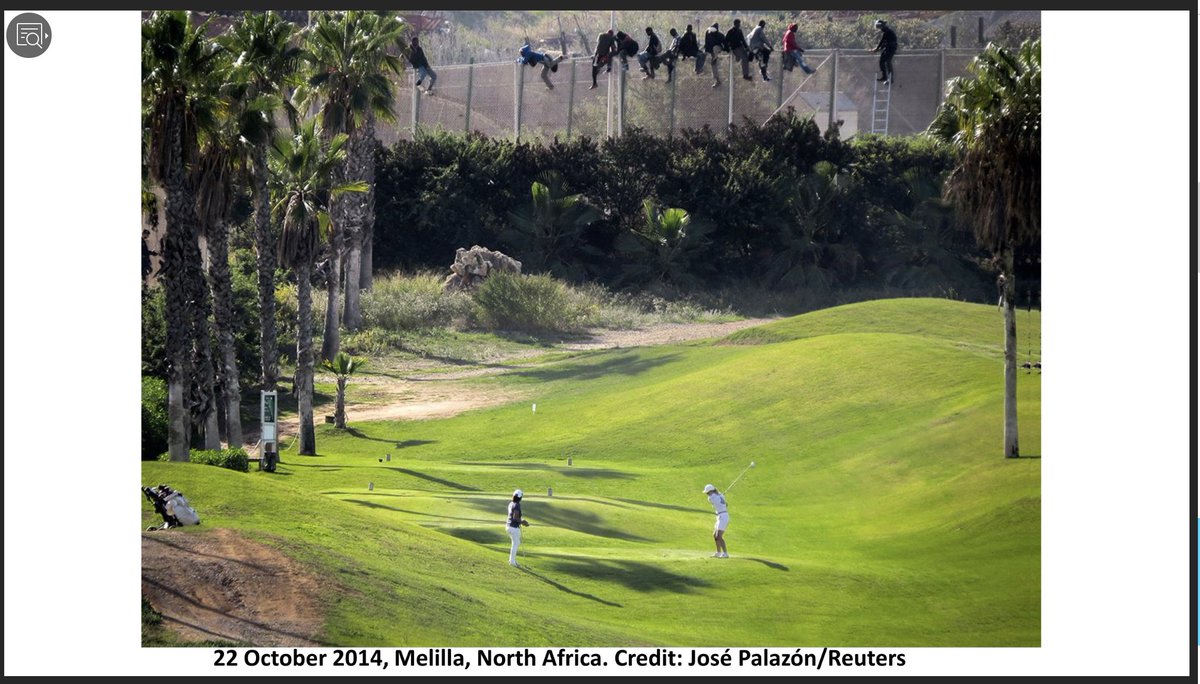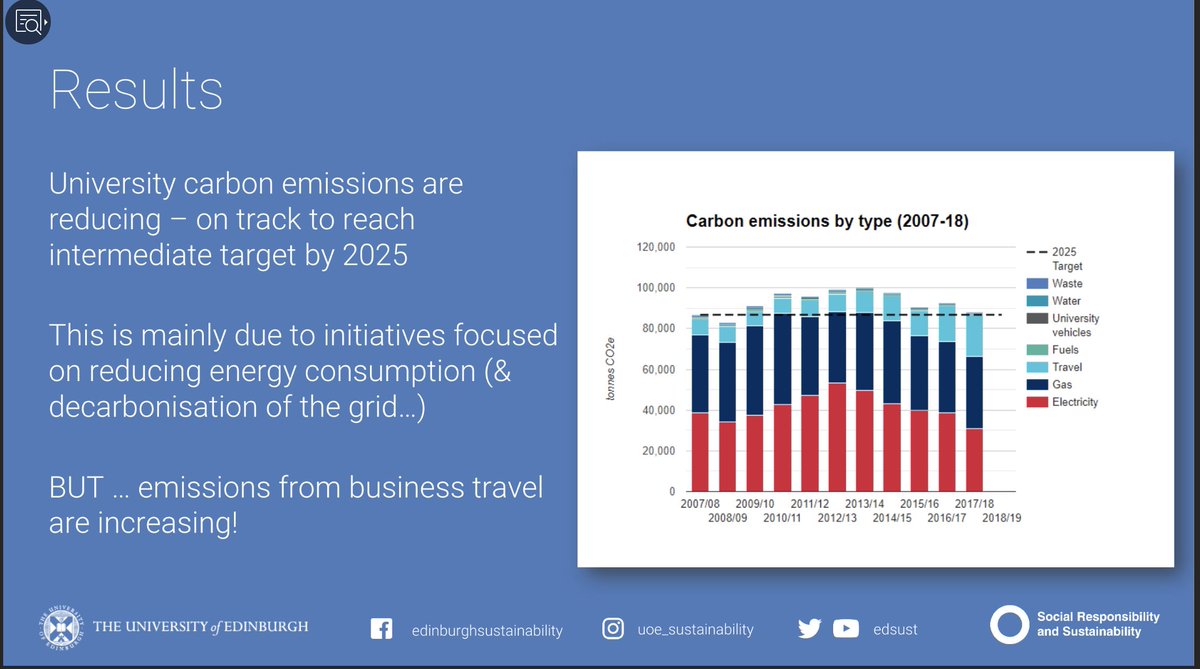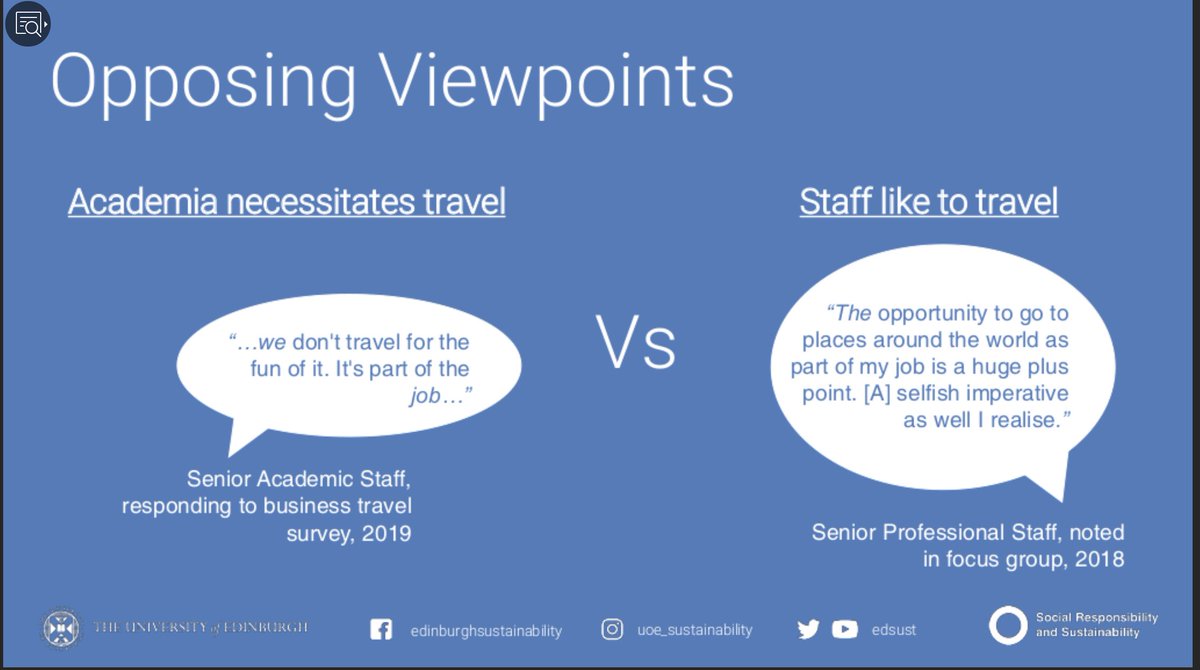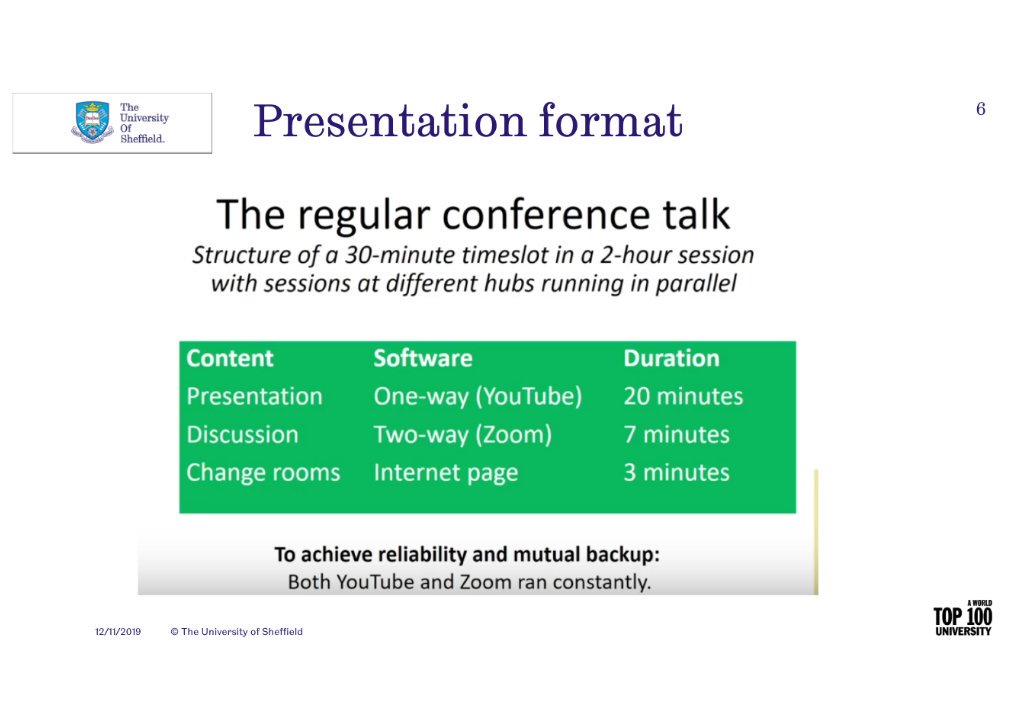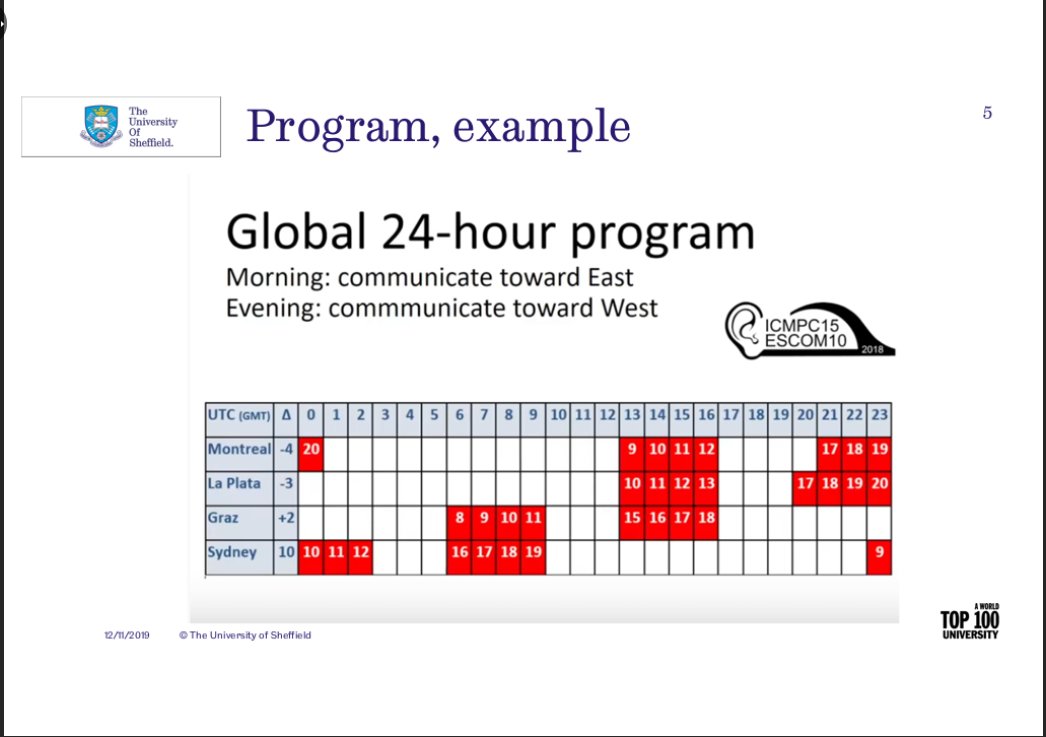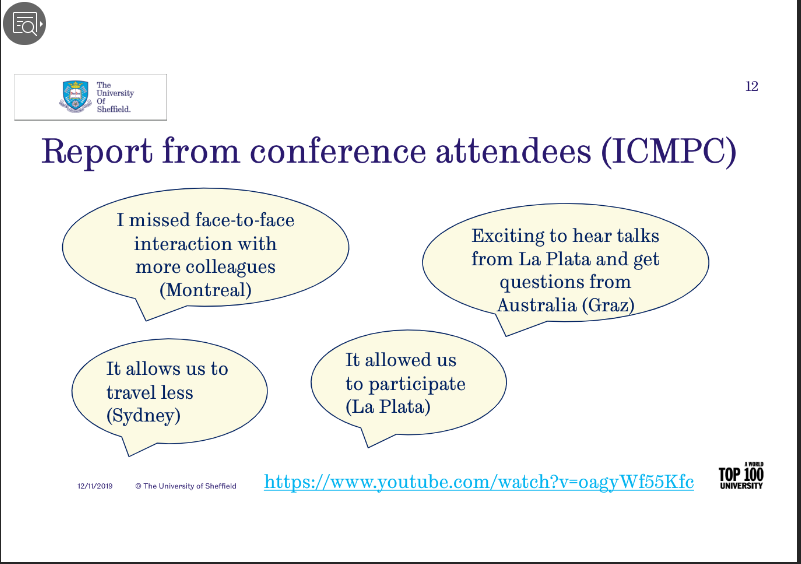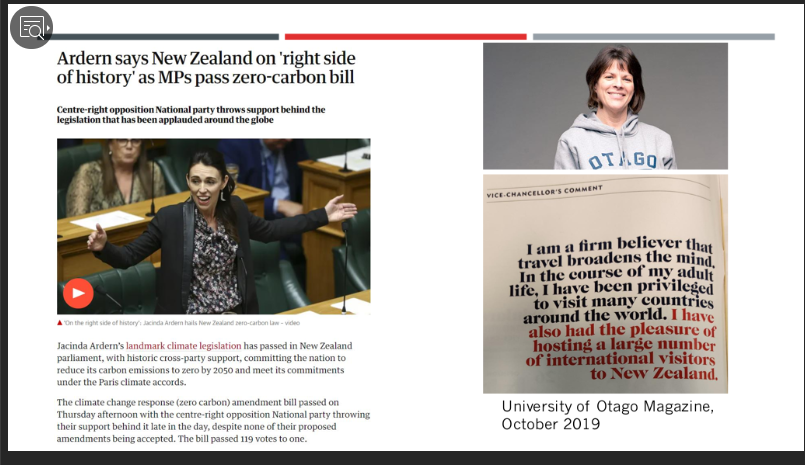Matt Watson @sheffielduni kicks off the "Reducing Flying in Academia" conference. "We know we need to get to a carbon neutral society- if academics can& #39;t do it, what hope is there for the rest of society?" #FlyingLess
https://www.sheffield.ac.uk/reducing-academic-flying-symposium">https://www.sheffield.ac.uk/reducing-...
https://www.sheffield.ac.uk/reducing-academic-flying-symposium">https://www.sheffield.ac.uk/reducing-...
Kudos to the organizers for braving "uncharted waters" experimenting with blended physical/virtual #FlyingLess conference today. They start w/ setting groundrules for how to participate both in person and online- very helpful to clarify expectations.
First presentation @sheffielduni #FlyingLess is from Monika Büscher, @LancasterUni. Academia is unequal- we don& #39;t hear enough from scholars in the Global South, and arguably hear too much from scholars in Global North. But flying doesn& #39;t help decolonize academia- rankings quest?
We need to seriously replace & revise our flying practices in academia and get beyond lock-ins that get us stuck. Trust is built in small interactions & pauses, need to find ways to support w/ more ambitious technology design to meet proximity needs. Monika Büscher, #flyingless
We need to understand the "compulsion of proximity," promote incentives ("our lives could be better if we didn& #39;t fly"), better socio-technical connections (w/o blind faith in technosalvation), says Monika Büscher, #flyingless
Not flying generates more time for doing the work- sometimes need to resist the "burden of mobility," have more time for exercise, family, nature. Int& #39;l keynotes/travel key for career progression- need to overcome structural (dis)incentives says Monika Büscher, #flyingless.
Next up: @theandrewglover on Australian academics aeromobility. Average Australian academic took 3 return domestic flights, 1.7 int& #39;l. Small group of hypermobile senior profs fly a LOT (8+/year). Conferences most common reason. See work flying as career "necessary." #FlyingLess
Challenges to Australian academics #flyingless: Academics think "nothing is as good" as face-to-face meeting.
Australia& #39;s widespread geography.
Sydney/major urban hubs don& #39;t fly as much, but more remote locations feel "duty to fly" also int& #39;l shows @theandrewglover
Australia& #39;s widespread geography.
Sydney/major urban hubs don& #39;t fly as much, but more remote locations feel "duty to fly" also int& #39;l shows @theandrewglover
Institutional orientations of Australian academics implicitly rely on air travel- internationalization, expectations. #Flyingless needs to engage with this substantially, says @theandrewglover. Value of the physical body presence - subtle interactions for collaborate/networking.
Is there a way to stop flying in a way that challenges the neoliberalization of #HigherEducation? asks Monika Büscher. How can we promote internationalization while #FlyingLess?
Next talk: James Faulconbridge @LancasterManage, "Conceptualising demand for flying: the ‘synthetic situation’ of academic work." Although there are many good reasons for #flyingless, currently flying is baked in to academic life as flour is into a cake from STS perspective.
"Using technology to collaborate creates new compulsions for proximity." James Faulconbridge says Skype etc is not really substituting for travel, rather demand for *everything* (physical AND virtual mobility) is increasing.
We need to think about really remaking academic life, not just substituting travel w/ tech, says James Faulconbridge. Removing foundation if "just stop flying" might make blocks fall down. Maybe need to unmake "the death of local collaboration" and rethink agency of travel.
Ways forward for #flyingless can be radical and/or pragmatic- solve coordination challenges, reconstitute university and academic career in different ways, beyond just substituting videoconferencing. Create new ways of doing & being, beyond just substitution. James Faulconbridge
Starting from assumption we CANNOT travel leads to different career plans, new structures in academia, says James Faulconbridge. This is the way to radically rethink #flyingless, instead of just tech substitution.
Next talk #FlyingLess conference: @flyingless co-founder @jonevins1 ‘Flying Less As Anti-Violence Practice.’ Environmental/slow violence harms people (eg air pollution) & animals (habitat destruction, pollution). Increasing walls are violent against both as well incl migrants.
Slower mobility may be central for democracy, argues @jonevins1 #FlyingLess. Cites social control achieved via controlling speed (via #FossilFuel access). Quotes Illich- societies traveling fast ("speed capitalists") become non-democratic high consumers > biking speed (20km/hr)
What type of world creates contrast of desperate migrants & carefree golfers? @joenevins1 argues, one where nature is accessed in profoundly unequal ways. The same world that allows a few academic elites to consume unsustainable, unjust share of Earth& #39;s resources. #FlyingLess
Next #FlyingLess talk: Sion Pickering @EdSust. Goal at @EdinburghUni is Net Zero by 2040 (but city council now by 2030, may push for faster?). Progress in reducing emissions from energy efficiency, but increased flying is undoing all that good and more- emissions going up!
Sion Pickering @EdSust says need to address both views of academic travel: "it& #39;s necessary"/"it& #39;s fun". Aimed for behavior change programs, but too challenging and time consuming to get all stakeholders on board. Now working on Stage 4. #FlyingLess
Inspiration from @renee_timmers on "A semi-virtual multi-hub conference format to reduce flying and increase inclusivity of academic conferences"- practical experience in #FlyingLess for 650 person academic conference!
Interviews w/ conference attendees who participated in virtual conference: https://www.youtube.com/watch?v=oagyWf55Kfc">https://www.youtube.com/watch...
Participation good!
Reduced face to face interaction, but tech opens ways to innovate.
Main point: we need culture change in conference organization! @renee_timmers #FlyingLess
Participation good!
Reduced face to face interaction, but tech opens ways to innovate.
Main point: we need culture change in conference organization! @renee_timmers #FlyingLess
OK, now it& #39;s lunchtime, but for those following on Twitter, here are some of my responses to conversations/questions in the virtual chat, thanks all for engagement! #FlyingLess
for low-carbon #FlyingLess networking, please see the slideshow reviewing literature on low-carbon conferences here http://kimnicholas.com/academics-flying-less.html">https://kimnicholas.com/academics... and this resource guide: http://docs.google.com/document/d/e/2PACX-1vSLG573KG2YrLhpT8SBgTKNvrEUBtTCN_NBVtdEl8jqHK_vY6MhonM4DeiEoMoh18CdyyfNdxCfp6gp/pub">https://docs.google.com/document/...
I also really recommend the http://virtualbluecop25.org"> http://virtualbluecop25.org , @ThomsenSoeren
is on Twitter and has written a lot about organizing a successful virtual networking event. Also http://academicflyingblog.wordpress.com"> http://academicflyingblog.wordpress.com organized a fun social #flyingless New Years& #39; Eve drinks last year :)
is on Twitter and has written a lot about organizing a successful virtual networking event. Also http://academicflyingblog.wordpress.com"> http://academicflyingblog.wordpress.com organized a fun social #flyingless New Years& #39; Eve drinks last year :)
I agree changing funding requirements/expectations is a big #FlyingLess lever academics need to push for- petitions, letters to the editor etc are helpful. @TyndallCentre guide has good thoughts on "who should fly" in their justification/ decision tree (prioritizing #ECRs).
I think the most robust carbon calculator is @CoolClimateNw http://coolclimate.berkeley.edu/calculator .">https://coolclimate.berkeley.edu/calculato... It is peer-reviewed (and also has the highest emissions estimates). @LarssonJorgen66 suggests reporting kilometers traveled to allow for easier/more robust comparisons, good idea! #FlyingLess
& #39;The tyranny of distance? Academic air travel beyond Europe/America& #39; @DebbieHopkins_
"Universities =critics & conscience of society" according to New Zealand Education Act <3. How do academics live up to this, esp in NZ where Europe is 24h, N/SAm are 12h flights away? #FlyingLess
"Universities =critics & conscience of society" according to New Zealand Education Act <3. How do academics live up to this, esp in NZ where Europe is 24h, N/SAm are 12h flights away? #FlyingLess
Climate tensions highlighted in New Zealand right now, @DebbieHopkins_ shows: @jacindaardern passes net zero climate law while head of @otago celebrates high-emissions flying, and NZ relies on int& #39;l tourism. #FlyingLess

 Read on Twitter
Read on Twitter


